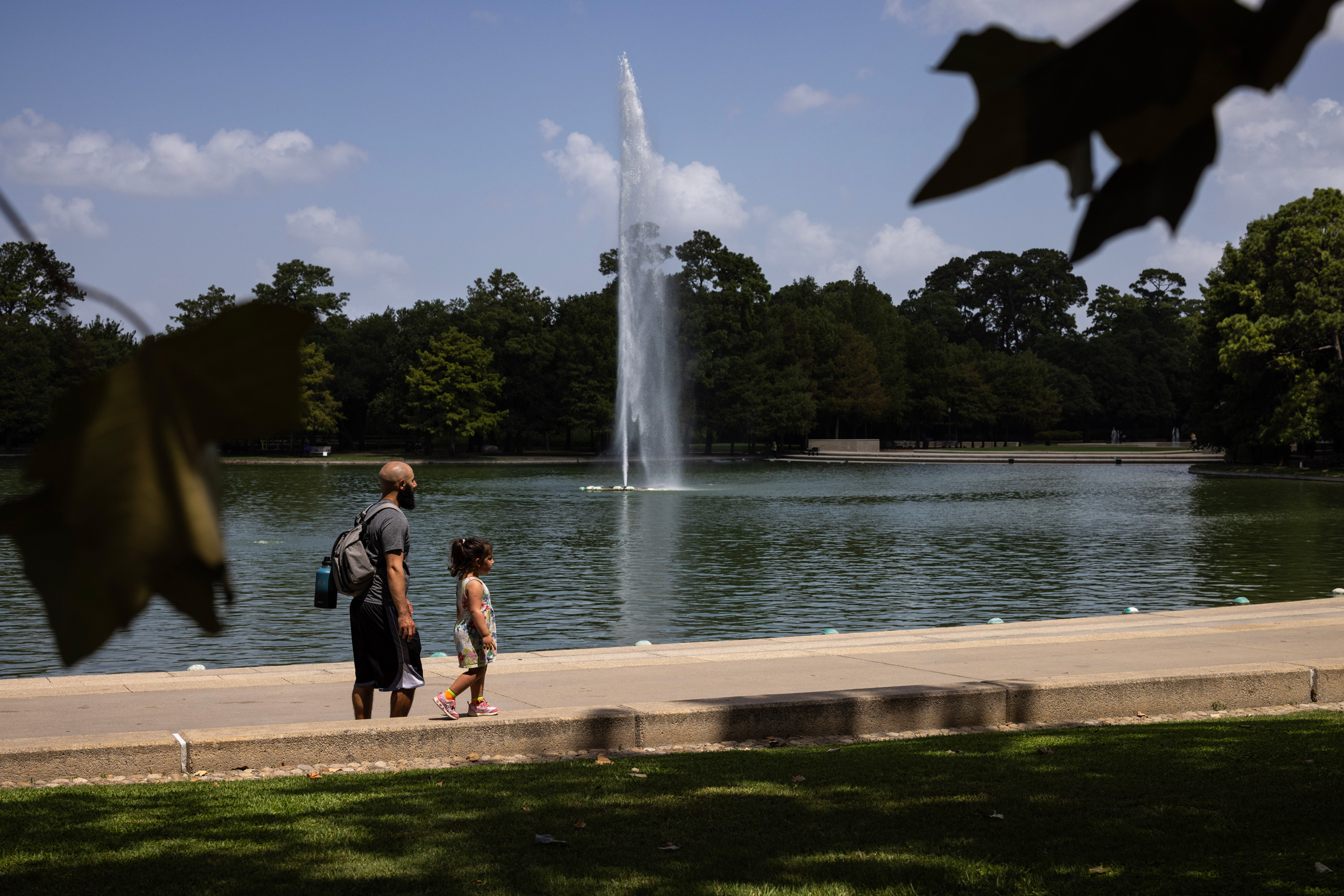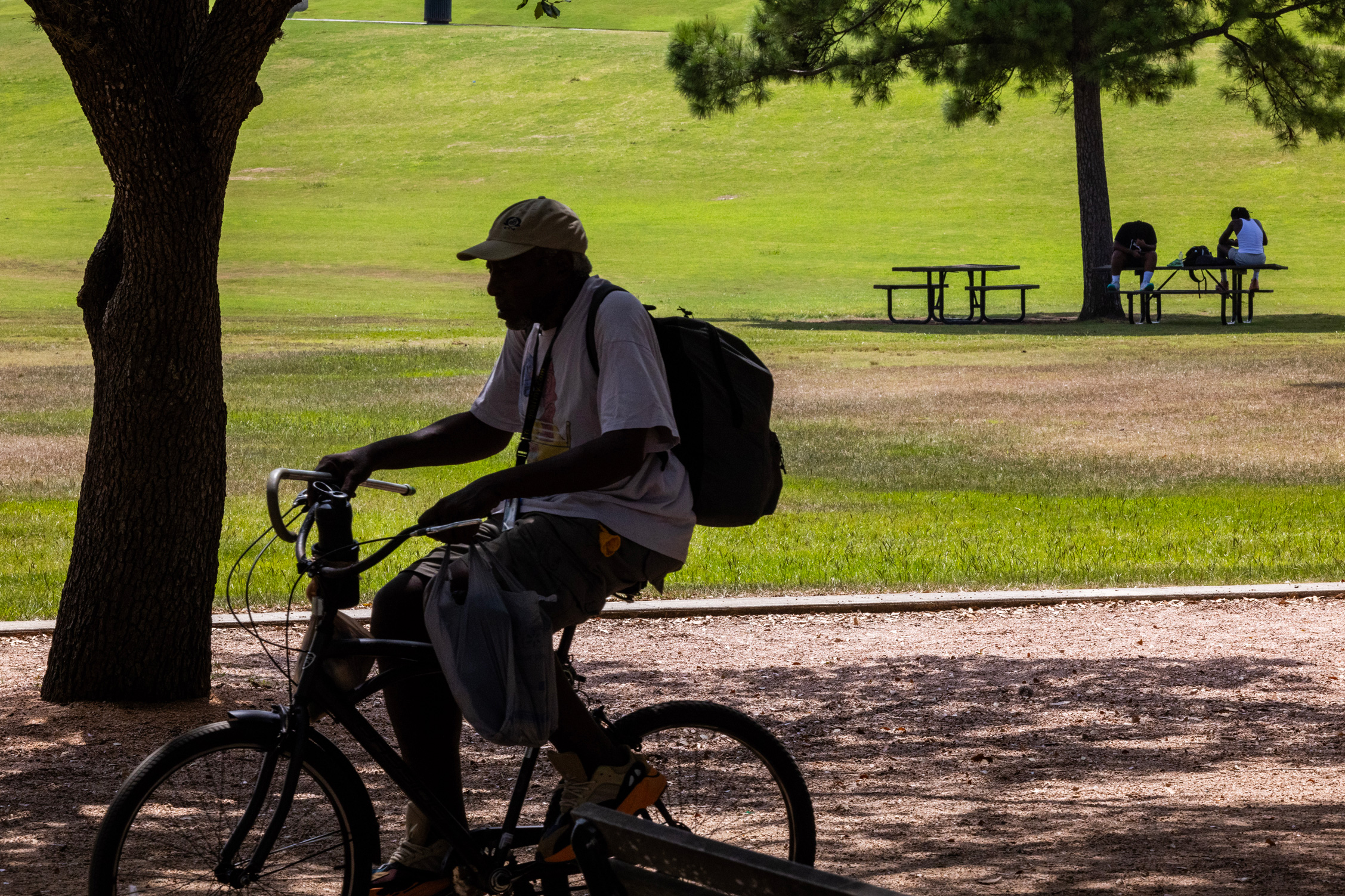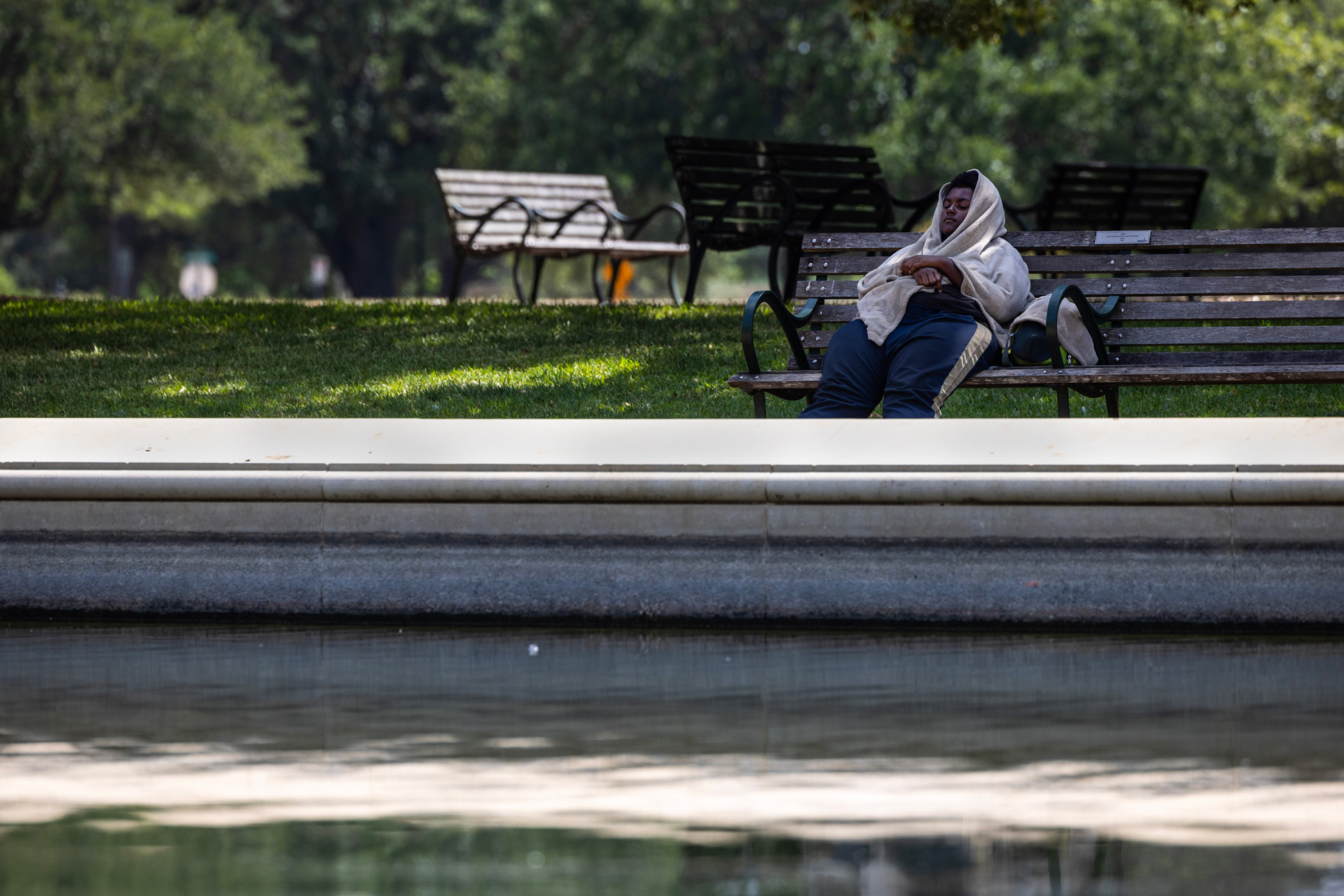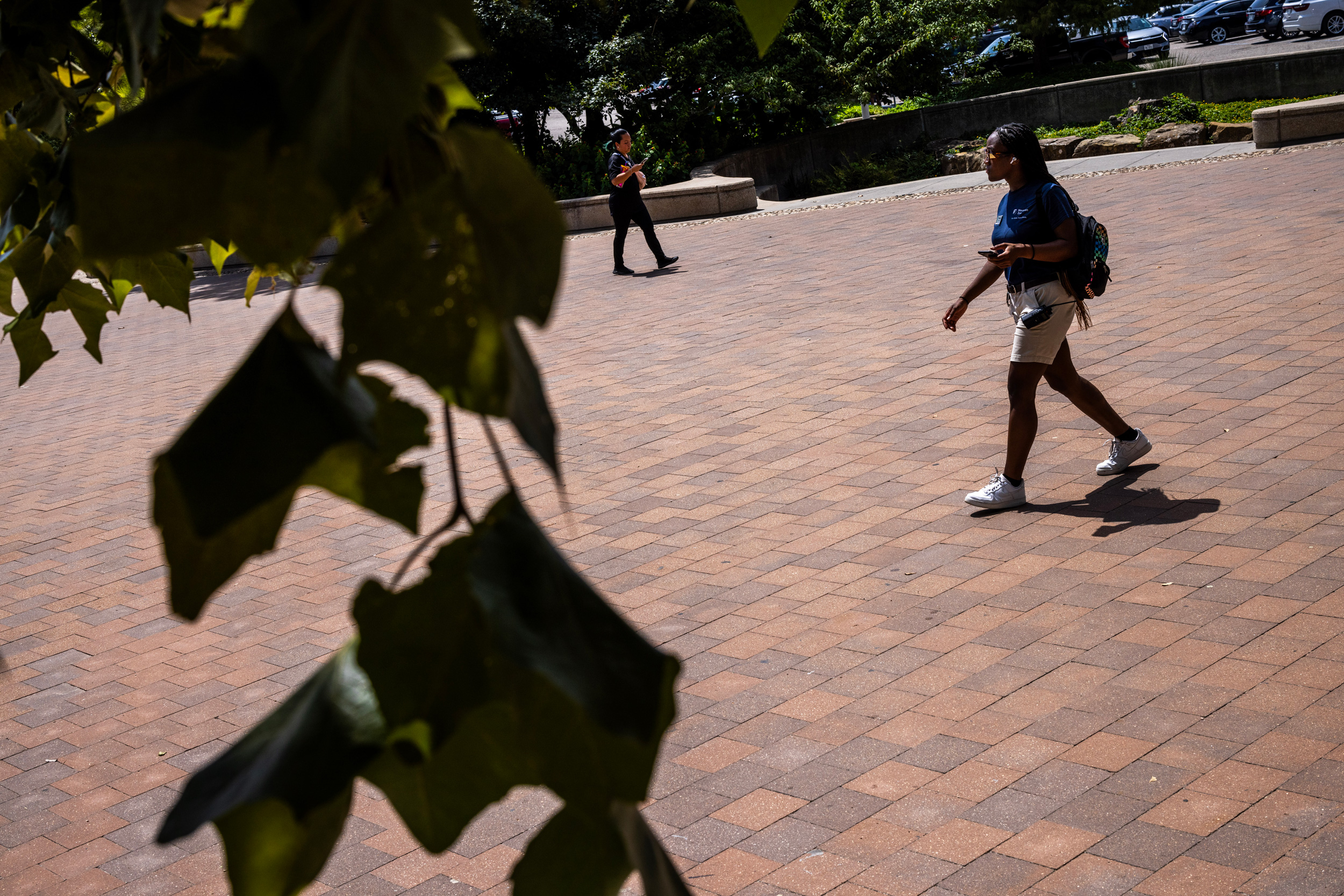|
Getting your Trinity Audio player ready...
|
It’s not in your head.
If you feel your mental health has been suffering due to this relentless stretch of excessive heat, you’re probably right. And you’re certainly not alone.

This summer is on pace to be among the hottest on record across Texas, and Houston is no exception. The National Weather Service issued daily heat advisories or excessive heat warnings for Houston for a 16-day stretch earlier this month, before a slight dip on Tuesday, according to the meteorologists at Space City Weather.
“When we have extreme heat, this affects our mood,” says Dr. Asim Shah, professor and executive vice chair of psychiatry at Baylor College of Medicine. “It will make you irritable and angry.”
Heat like this can trigger our body to produce more of the mood-regulating chemical serotonin, says Shah. “And when you have an increased level of serotonin, you will get irritable, angry, aggressive, and all those things will cause mood swings.”
Shah says the best way to avoid this problem is simple: stay indoors.
And Houstonians are definitely doing more of that. I know I have.
Walking has always been my favorite hobby. During the pandemic, I was able to mix work and play, sneaking in about six to 10 hours of walking meetings each workweek while stationed in my home office. It helped my mental — and physical — health. Now that the pandemic is (mostly) in our rearview mirror, I’ve shifted to shorter walks after work. Or at least that had been the plan until the heat became so intolerable that I can no longer safely strap my daughter into her stroller without worrying she’ll overheat.
Since the sun sets after her bedtime, my walks have been on hiatus, save our glorious Sunday morning strolls in one of Houston’s many parks. But this Sunday, as my family and I walked through Hermann Park, I remarked to my husband (and, of course, to Twitter) that I’d never seen the park so sparsely populated.
Turns out, my observation was right on the money.
“You know, for the last few summers, it’s been extremely hot. But not as impactful as this summer, with consecutive days, back to back to back,” says Kenneth Allen, director of the Houston Parks & Recreation Department. “So during the hottest part of the day, which seems like all day, we’re seeing less people taking part in outside activities.”
Across Houston’s parks, Allen says his department has seen fewer people out walking, jogging and participating in other exercise across all hours of the day. The only activity he says he’s seen hold consistent with other summers’ expectations is golf. (“Golfers are crazy,” he says, noting he can’t be excluded from that observation.)
But limiting outdoor exercise comes with its own set of issues that affect our mental and physical health.
“If we’re losing our natural exposure to sunlight, we can experience a kind of Seasonal Affective Disorder,” says Dr. Sean Fitzpatrick, executive director of The Jung Center, a nonprofit organization focused on improving community mental health. This comes from a decrease in Vitamin D, which is absorbed by the body when we have access to sunlight.
“Vitamin D deficiencies increase during periods like this, and Vitamin D deficiencies are strongly correlated with depression and anxiety,” Fitzpatrick says. “And if we’re accustomed to being outside to get our exercise, then that’s going to have a profound effect on us.”
So what can we do?
“This year, we decided to try something new: It’s called Park After Dark,” says Frankie Ortega, the spokeswoman for Discovery Green. From 7 p.m. to 10 p.m. every Thursday the downtown park hosts evening programming. The park extends the hours for the popular water fountains, which usually stop flowing at 7, and also offers salsa dance lessons, gardening classes and extra playground hours.
“People want to get out of the house. They want to have good, fun, free things to do. And we’re trying to respond to that demand,” says Ortega.
It’s an idea park employees had been kicking around for a while. But when the heat really came to a head in June, there was consensus. “It was like, ‘Absolutely, this needs to happen,’” says Ortega. “Part of our mission statement is to be a source of health and happiness for our citizens, and a big part of that is being outdoors and being in nature. People need that. We need to be able to touch grass and look at trees.”
We also need to be able to feel as though we’re part of a community. And being cooped up inside can make it harder to experience true human connection — a notion that was proven repeatedly during the pandemic, another period of acute stress in which depression and anxiety increased
“Feeling isolated and lonely has huge mental health impacts on us. And given that we’ve come out of this period of COVID isolation, we’ve gotten more habituated to being at home alone,” says Fitzpatrick, at the Jung Center. “And now the heat is not helping things and our ability to naturally connect with other people.”
So, he says, get inventive. Not every outing is going to provide sunlight and exercise and a group activity, but if you can be inventive, you can find ways to hit all three of these goals over a variety of activities. Head to Discovery Green at night. Try walking at the Galleria, or meeting friends for a Barbenheimer double feature in the crisp, air-conditioned atmosphere of a movie theater.
And keep in mind that while there’s an expectation that you might dip into the doldrums a bit during extended periods of hot weather, there’s also a time to seek help if you feel as though you — or a loved one — are experiencing severe mental health issues.
A study published last year in the medical journal JAMA Psychology found that “days of extreme heat were associated with higher rates of (emergency room) visits” for a variety of mental health conditions including anxiety and mood disorders.
“When you are struggling to function as you want to in your relationship, at work and in your experience of yourself, it’s probably time to reach out for help,” Fitzpatrick says.
Share your Houston stories with me. We can start on Twitter, Facebook and Instagram. Or you can email me at [email protected].






